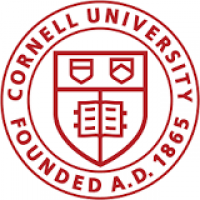






Cornell is an outstanding place to learn chemistry — understanding, investigating, and creating molecules and materials. The Department of Chemistry & Chemical Biology is home to leading researchers and educators having diverse interests and backgrounds. Chemistry involves understanding and manipulating matter at the molecular and atomic level. It is an experimental science, guided and inspired by theory. Chemists use careful reasoning and trial-and-error experimentation to create new molecules in order to explore new materials, study biological processes, and develop therapeutics, with the common goal of ultimately improving everyday life. Most of what we now know in chemistry has been discovered in the last one hundred and fifty years. There remains enormous room for creativity. The field continues to evolve at a rapid pace, with discoveries being made at universities, companies, and government laboratories. Chemists are a large, collaborative scientific community with high professional standards supported by active, worldwide professional societies. Chemistry is moreover a central science, with strong connections to Biology, Geology, Engineering, and Physics. These connections are evident in the designations of the subdisciplines of Chemistry, which the American Chemical Society presently lists as Analytical Chemistry, Biochemistry, Inorganic Chemistry, Organic Chemistry, and Physical Chemistry. The undergraduate Chemistry degree at Cornell is designed to teach students both the art of chemical experimentation and the conceptual framework used by working chemists to understand and manipulate matter at the molecular and atomic level. The major’s core courses are organized around the subdisciplines of Chemistry, supported by required Mathematics and Physics prerequisites. Students supplement this in-depth, core training with upper-level courses chosen from a broad, diverse set of electives. These electives are designed to allow students to explore their own interests while examining the application of chemical thinking in related scientific disciplines.
| Number | Duration |
|---|---|
| 4 | year |
Career Paths and Alumni The Chemistry major offers a near-unique combination of intellectual rigor and laboratory experience — thinking, making, and measuring. The undergraduate chemist will learn to design experiments thoughtfully, acquire data carefully, and draw firm conclusions from incomplete and diverse information. Roughly equal fractions of each Cornell chemistry undergraduate class goes on to pursue graduate work in science and engineering, matriculate into a medical school, or pursue their own path. The major’s rigorous training is an outstanding launching point for a wide range of careers encompassing teaching, business, economics, law, and government service.